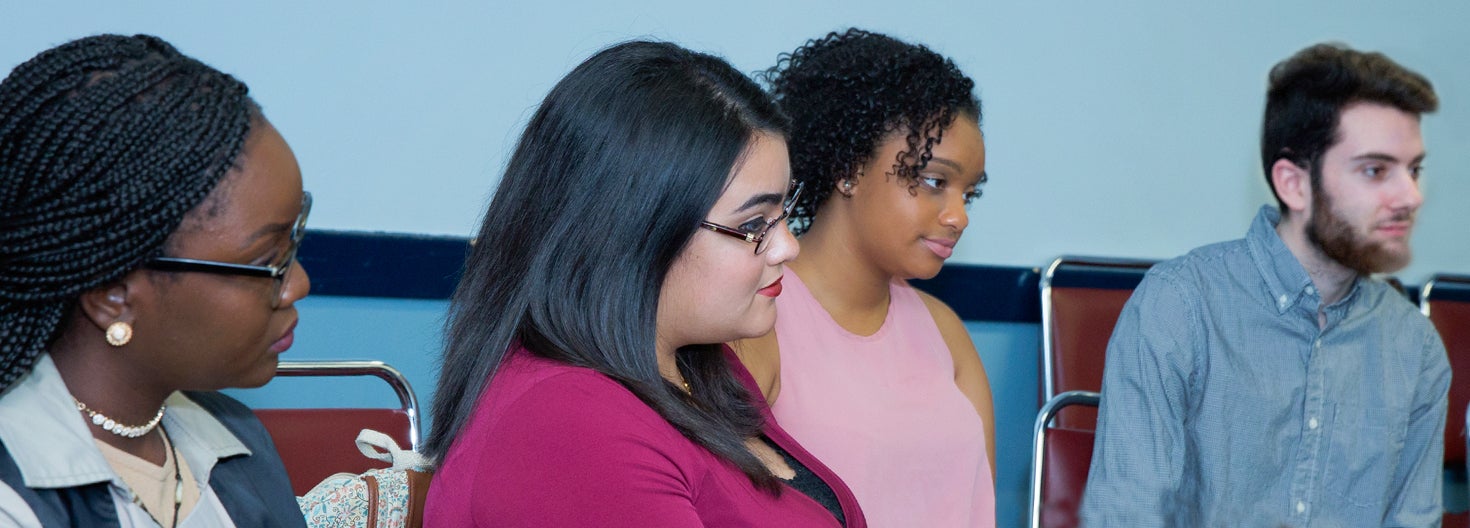 When students talk about the Rose Butler Browne Mentoring Program course, they use powerful words like identity, community, and validation. When junior Selena Evora, who enrolled in the course as a freshman, reflects on its impact, she talks about transformation.
When students talk about the Rose Butler Browne Mentoring Program course, they use powerful words like identity, community, and validation. When junior Selena Evora, who enrolled in the course as a freshman, reflects on its impact, she talks about transformation.
“The class was a transformative experience that helped shape and influence my identity,” said Selena, who has a double major in health studies and gender and women’s studies as well as a leadership studies minor. “Becoming a member of the RBB community gave me a sense of comfort and the validation of being a woman of color in a predominately white college campus.”
The distinguished namesake for the course is Rose Butler Browne, a 1921 graduate and the first African-American woman to receive a bachelor’s degree from the University of Rhode Island. Browne went on to become a nationally recognized educator and civil rights leader, and the course named in her honor continues her legacy.
By being authentically ourselves and validated not only by our instructors, but our readings, made me realize that this was the key to success for women of color.
Created for women of color, the class—also known as HDF 291—is open to anyone, regardless of gender or ethnicity, and is eligible for credit toward the leadership studies minor. It explores a range of issues relevant to women of color—cultural identity, beauty, body image and the media, leadership, community engagement, and mentoring, among others.
Melissa Camba-Kelsay, coordinator of URI’s Center for Student Leadership Development, has been teaching the class since 2010. “It is designed to look at the spectrum of identities we all have—and how the different pieces of our identity impact us.”
Literature provides the foundation of the class, which is “grounded in an historical perspective, and begins with what we can learn from our elders,” Camba-Kelsay said. From these stories of struggle and triumph, students learn lessons of resilience, of what it means to be a strong woman. The class explores contemporary challenges that women of color face as well as how issues from the past may continue to impact them. It also examines what leadership looks like for women of color in today’s world.
Building community and creating a place of validation are among the goals of the class, said Camba-Kelsay. A key component of the class—students sharing their stories—creates a bond where that can happen.
Senior Kayla Berrios, who has a major in gender and women’s studies and a minor in leadership studies, enrolled in the course as a sophomore.
“When I took RBB, my perspective as a woman of color changed. I began to see myself in the class content, the instructors, and in my peers’ experiences. The things we shared and the discussions we had resonated with me and how I look at identifying as a woman of color. By being authentically ourselves and validated not only by our instructors, but our readings, made me realize that this was the key to success for women of color.”
Peer mentorship is an important component of the class. Both Selena and Kayla returned to the class to participate as peer mentors as a way to give back. They offer their example and support to new students and welcome them into a community that continues to grow. It is important work.
“As a woman of color, I did my part to empower other women of color,” said Kayla.
Pictured from left: Edith Fidi, Lucinda Gonzales, Selena Evora, and Austin Ramos.
Photo credit: Jess Vescera
